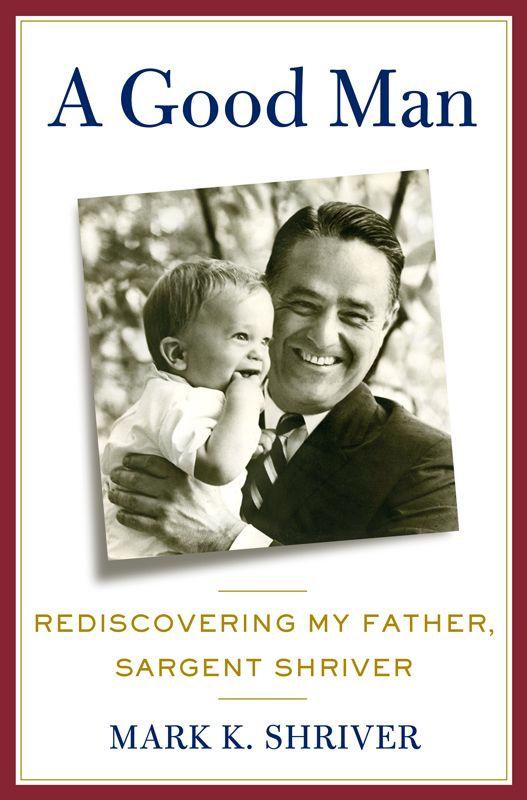
A Good Man
Rediscovering My Father, Sargent Shriver
کتاب های مرتبط
- اطلاعات
- نقد و بررسی
- دیدگاه کاربران
نقد و بررسی

September 3, 2012
In light of the recent passing of Sargent Shriver in 2011 after an extended battle with Alzheimers, his son honors his father's life and legacy in this heartfelt memoir. Beyond "Sarge"'s notable contributions to public service, such as his founding of the Peace Corps and his role in formulating Lyndon B. Johnson's War on Poverty, it is Shriver's roll-call of attendees at his father's funeral that speaks powerfully to Sarge's character. He was by all accounts a man of extraordinary drive, compassion, and kindness; at the memorial service, Sarge was eulogized not only by Oprah and President Clinton, but by Calvin, his garbage collector; and Ms. Wilson and Ms. Williams, waitresses at his "regular lunch spot" who said that they "had never met a more polite, thoughtful man in their forty years of work." Indeed, confronted with the choice between politics or family, Sarge consistently privileged the latter. Recalling a time when the author's brother fell down and began to weep, Shriver remembers "Uncle Bobby" Kennedy reprimanding the young boy, saying "Kennedys don't cry!" In response, Sarge quickly picked up his son and said, "It's okay, you can cry! You're a Shriver!" Though Shriver's writing chops may not measure up to the esteem in which he holds his father, this is nevertheless a moving and engaging tribute. 26 color photos.

April 15, 2012
The son of recently deceased Sargent Shriver and Eunice Kennedy Shriver reflects on his father's towering achievements. Being the son of JFK's right arm who first organized and led the Peace Corps, orchestrated LBJ's War on Poverty and ran for president in 1976, Shriver struggled mightily his whole life under the shadow of a benevolent, famous father, portrayed here as nearly saintly in his Catholic faith and sense of humanitarian mission. A native of Westminster, Md., the elder Shriver served in World War II, attended Yale and started his law career in Chicago. He became a junior editor at Newsweek, where a felicitous contact with Joe Kennedy got him hired to run Kennedy's Merchandise Mart in Chicago; he eventually married Kennedy's daughter, Eunice. Jack Kennedy and Sargent Shriver had known each other back at the Canterbury School, and Shriver was soon enlisted to aid Kennedy's campaigns and garner the talent for Kennedy's "best and brightest" Cabinet. A peacemaker, statesman, friend of the Church and head of the Special Olympics (founded by Eunice Kennedy), "Sarge" was a hard act to follow. His slipping into Alzheimer's during his last years strained the relationship between father and son, who was serving in the Maryland legislature and ultimately lost his 2002 race for Congress, yet also transformed and deepened the son's appreciation of his father's accomplishments and his own shortcomings. Keeping up with the Kennedys is a major theme in the book, since the Shriver clan spent the holidays at Hyannis Port with the slew of Kennedy relatives and cousins. A fairly straightforward, rueful memoir in which the author achieves frank self-acceptance.
COPYRIGHT(2012) Kirkus Reviews, ALL RIGHTS RESERVED.

June 1, 2012
Shriver, founder of the Peace Corps, had by the time of his death at 95 in 2011 earned a sound reputation as a good man. Now his son explores the man behind what has come to be an overused and not always deserved description, portraying someone who was not just kind and principled on a public stage but also in everyday interactions with family, friends, and neighbors. Shriver wrote his son a letter nearly every day of his adult life, which the son ignored in the hustle and bustle of life. Drawing on those letters and others, including one written in anticipation of Shriver's death, Mark offers an intimate portrait of an ambitious man whose drive was more spiritual than political, a man of great personal stature operating in the shadow of a powerful political family. Mark recalls childhood in a hyperactive household, with hard-charging adults, the trauma of the Kennedy assassinations, and the steadfast guidance of his father. Mark, founder of Save Our Children, watched his father struggle with Alzheimer's in his later years and yet maintain the riddle of his joy. (Reprinted with permission of Booklist, copyright 2012, American Library Association.)

























دیدگاه کاربران